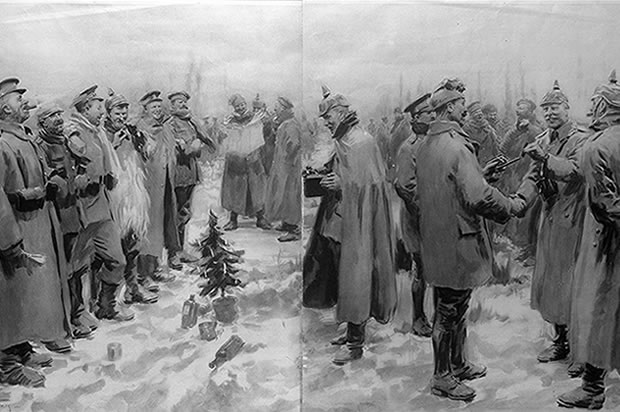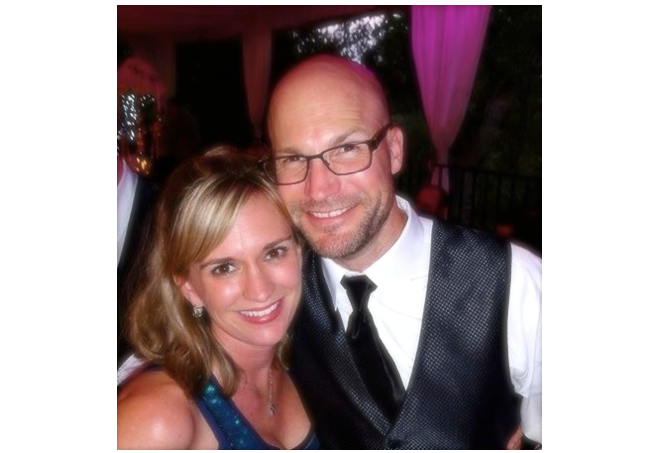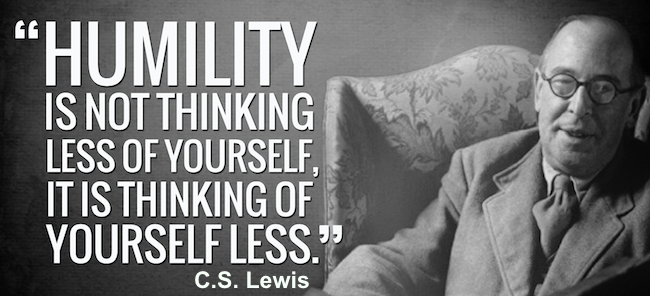
by Lance Cashion | Feb 5, 2015 | Culture, Family, Friendships, Generosity, God, Jesus Christ, Lance's Philosophy, News, Personal Growth, Relationships, Stewardship, Uncategorized, Wisdom
A few years ago, Kathryn and I owned a beautiful SUV. It was truly a work of precision German engineering. It was the top of the line of ‘top-of-the-line’ SUVs containing all the ‘bells and whistles’ one could possibly imagine in a fine motor car. It was stunning and impressive. The darn thing was expensive. The warranty expired and we learned that maintenance was darn expensive as well. The ‘special’ run-flat tires could not be rotated. They had to be replaced (usually two at a time). The tires alone cost $650 each and had to be replaced about every 10,000-12,000 miles. Do the math. That’s $2600 per year in tires! As a special bonus, we had the privilege of replacing a cracked wheel at the low-low cost of $900. In one year, we spent over $3500 on tires and wheels. Oh yeah, did I tell you that it was beautiful, stunning and impressive? You can learn something from car tires.
Materialism requires maintenance
Here’s the lesson that you should take away from my foolishness. If you place any of your personal self-worth on the stuff you buy, get ready to spin your wheels and work your arse off to maintain it. I don’t care if you have millions or billions, if you place your ANY of your self-worth on the stuff you can accumulate in life, you will live in a cycle of maintenance. Take if from me, I’m a recovering materialist!
Everything we buy ends up in a trash heap somewhere. That expensive SUV we owned will eventually end up a rusted hunk of junk in a junk yard. That expensive home will eventually be torn down. All the stuff that we buy to impress others and/or make us feel better will eventually decay in some hole in the ground.
The material isn’t the problem, ‘Materialism’ is
Owning nice stuff is not the problem. The problem is when we tie our value to the stuff we own. When we love stuff and our capacity to attain more stuff more than we love God and people, we have exchanged that which is priceless for something with a price tag. Stuff can become an idol. Eventually, we run the risk of allowing that idol to rule over us and we eventually end up in bondage. The stuff owns us.
I’ve seen too many people end up with a pile of really expensive junk and massive bank accounts only to spend their last days completely alone in the pit of regret. They don’t even have anyone to share the regret with except those who they hire to maintain their stuff while they die alone.
You don’t have to get caught up in the nasty cycle of Materialism! Ponder this…
- Order you life: Life is about relationships. Who would you trade all your stuff to save their life?
- Motivation of the heart: Have you ever asked yourself ‘why’ before you buy?
- Value: Do you attach personal value on things you buy? A little status, perhaps? Be honest.
- Envy: When someone else buys something you desire to own, does it make you angry or bitter?
- People: Who are the people you spend the most time with? Are they people who work for you?
- Generosity: One cure for materialism is to give stuff away. Give something you love away (rinse and repeat)
- Breaking the grip of Materialism: Read this post..
- Cultivate Relationships: Seek time with God, family and friends. This means reaping and sowing. Do you invest in these three relationships? Are you generous with your time, talent and treasure?
What is true wealth?
“Add up everything you have that money can’t buy and death can’t take away.” -Pastor A. Rogers
Explore these passages.
“For the love of money is a root of all kinds of evils. It is through this craving that some have wandered away from the faith and pierced themselves with many pangs.” 1 Timothy 6:10
“Jesus said to them, “Render to Caesar the things that are Caesar’s, and to God the things that are God’s.”” Mark 12:17
“And Jesus, looking at him, loved him, and said to him, “You lack one thing: go, sell all that you have and give to the poor, and you will have treasure in heaven; and come, follow me.” Disheartened by the saying, he went away sorrowful, for he had great possessions.” Mark 10:21-22

by Lance Cashion | Jan 15, 2015 | Education, Goal Setting, Jesus Christ, Lance's Philosophy, Leadership, News, Personal Growth, Relationships, Uncategorized, Wisdom, Worldview |
We take up our cause because we believe it is right and good. We know that it is good and we are passionate about reaching the good result. Somewhere along the path toward our goal of achieving what is right and good, we can fall into the trap of the wrong way.
Winning at all costs is not winning. “For what will it profit a man if he gains the whole world and forfeits his soul? Or what shall a man give in return for his soul?” (Mt. 16:26) If I have not love in my heart as I pursue what is right, I fail. If I love the object of the rightness of my cause and have no love for those on the path, I have created an idol. When my pursuit of what is right destroys fellowship and unity causing division, I have not love in my heart. I have gone the wrong way.
The heart will produce fruit that will manifest in reality. By the fruit, the wise can discern the motivation of the heart. We can attempt to manufacture ‘good fruit’ but eventually the facade will crumble and we will be found on the wrong way.
In the pursuit of doing the right thing, our way must be the way of love. It is a matter of the heart. The heart is the seat of the will. Our motivations are born in the heart.
The right way
A heart that is authentically regenerated and transformed will produce spiritual fruit in one’s life. “But the fruit of the Spirit is love, joy, peace, patience, kindness, goodness, faithfulness, gentleness, self-control; against such things there is no law.” (Gal 5:22-23).
The wrong way
A heart that is not transformed remains under the authority of darkness and rebellion is completely incapable of producing spiritual fruit in one’s life. The bible calls this state of the heart ‘the flesh.’ “Now the works of the flesh are evident: sexual immorality, impurity, sensuality, idolatry, sorcery, enmity, strife, jealousy, fits of anger, rivalries, dissensions, divisions, envy, drunkenness, orgies, and things like these…. those who do such things will not inherit the kingdom of God.” (Gal 5:19-21b)
Doing the right thing the wrong way
There are examples in the Bible of people doing the right thing the wrong way. Cain’s sacrifice was not pleasing to the Lord because of his motivation. Abraham and Sarah’s decision to use Hagar to provide an heir. Jacob and Rebekah’s deception of Isaac to attain Esau’s inheritance. Somewhere along the path toward their goal of achieving what is right and good, they fell into the trap of the wrong way.
How do we know we are doing the right thing the RIGHT way?
- Pray it through: Why am I really pursuing this ‘good thing’? Is it to earn points with God or man? What is truly motivating me? What is driving me toward this cause or goal?
- Check your fruit: Keep a journal on your journey and look for fruit.
- Test it with Scripture: Read God’s word and allow it to minister to you. Don’t treat it like a cafeteria where you pick and choose what supports your goal/mission.
- Be Accountable: ‘Iron sharpens iron.’ (Pr. 27:17) Share what you are doing with a brother or sister who will test you and hold you accountable. They must be able to ask the tough questions. Don’t trust yourself because you can deceive yourself. Get a trusted friend to help.
The way of love ties it all together.
“Grace and truth need each other. Grace ceases to be grace if it lacks truth. And truth loses its power if it lacks grace. Grace without truth sanctions and perpetuates unwanted actions…. Truth without grace is harsh, usually self-centered, and un-Christlike. Grace without truth is deceptively permissive, often lazy and equally un-Christlike… Should I show grace or should I tell the truth?’ Both. Love unites grace and truth.” – Bill Robinson

by Lance Cashion | Dec 17, 2014 | Encouragement, Family, Friendships, God, Jesus Christ, News, Personal Growth, Relationships, Uncategorized, Wisdom |
World War I was thought to be the ‘war to end all wars’.
It was a bloody conflict that dragged on for years. Both sides were entrenched in the mud and blood across Central Europe in a stale-mate. Between the trenches lay ‘no man’s land.’ When either side called their boys to charge, it was a death sentence. The charging soldiers who emerged from the safety of their trenches would be mowed down like fresh blades of grass by enemy machine-gun fire. From 1914 to 1918, 9 million soldiers and 7 million civilians died.
One cold winter’s night early in the war the guns fell silent. In late December 1914, young men emerged from the trenches and greeted each other. The Allies and Germans met in ‘no man’s land’ in an unofficial truce. It was a Christmas ceasefire where men of goodwill but of opposing politics and heritage met in the most dangerous place in the world at the time, ‘no man’s land.’
Over the years, I’ve learned that Christmastime is much like ‘no man’s land’ for many.
Conflicts and turmoil within families have killed any spirit of goodwill or peace among kin. Practically all joy has disappeared as hearts sink and tensions rise among family members. The wounds are so deep that many refuse to leave their trenches. They remain alone on Christmas. Others attempt to endure with family by showing up physically while their hearts remain in the trenches. As bitter winter winds sweep through our towns, bitter spirits chill hearts and the soul shivers from lack of warmth and love.
Having personally come from a complicated and conflicted family, Christmas was a time of the year I wanted to skip usually. Although the situation has been healed and I cherish Christmas today, I understand what many are going through.
In his moving book, ‘Silent Night’, Stanley Weintraub captures the story of the Christmas Truce during WWI. Enemies emerged from the cold, wet trenches to meet in ‘no man’s land’. They erected Christmas trees, played games, exchanged pleasantries and mementos. For a few short hours sworn enemies became men of goodwill.
The Christmas Truce of 1914 began with one man’s courage and goodwill. History does not record this man’s name but his action spread up and down the enemy lines in Europe. One man of goodwill, took one step into ‘no man’s land’ and changed everything.
Perhaps you are dreading the days ahead and coming into contact with family or friends who have become enemies over the years. Maybe the wounds run so deep, you can’t possibly bring yourself to be in the same room. The trenches have been dug and ‘no man’s land’ is so frightening, why even go there?
What would it be like if you stepped out of your trench and into ‘no man’s land’?
What would have to change in your own heart to suspend your thoughts about the enemy and meet him or her as if you did not know them at all? Treat them as if they were a friendly stranger who just wished you a Merry Christmas?
Pursuing Peace:
Peace begins in the heart and is acted upon through the will in one person. One person makes one bold move and others respond. It is not about building consensus. It is about having courage. Sowing the seeds of peace will reap a harvest and potentially change the trajectory of a relationship.
“Turn away from evil and do good; seek peace and pursue it.” – Proverbs 34:14
A Peace Promise with yourself:
An old hymn points out that peace is seated in the will and heart of the individual.
“Let there be peace on earth
And let it begin with me.
Let there be peace on earth
The peace that was meant to be.
With God as our Father
Brothers all are we.
Let me walk with my brother
In perfect harmony.
Let peace begin with me
Let this be the moment now.
With every step I take
Let this be my solemn vow….”
“Blessed are the peacemakers, for they shall be called sons of God.” – Matthew 5:9
“Peace I leave with you; my peace I give to you. Not as the world gives do I give to you. Let not your hearts be troubled, neither let them be afraid.” – John 14:27
In seeking peace with God, there is a blessing. In seeking peace with others there are more blessings.
Do you want to pursue peace?

by Lance Cashion | Nov 26, 2014 | Family, Friendships, Generosity, God, Jesus Christ, News, Personal Growth, Uncategorized |
The other day a friend casually ask me, “What are you thankful for this Thanksgiving?”
I was caught by surprise by the question. Not because I couldn’t think of anything to be thankful for but, I was struck by another question that emerged in my mind. I must have appeared dazed to my kindly questioner because their smile turned into a puzzled look.
As my mind was flooded with memories, I stood paralyzed in thought and completely overwhelmed. The words left my lips as I mumbled, “Where do I begin?”
Thanksgiving is tomorrow. If you are on Facebook or Twitter, you’ve already noticed Thanksgiving themed posts streaming from the news feeds. Thanksgiving is taking over! In the midst of the turkey, stuffing, Black Friday and football, I think I found the real question behind Thanksgiving.
The real question behind Thanksgiving is NOT, “What am I Thankful for?”
The real question is, “Where do I begin?”
From the breath in my lungs to the love of my family and friends, where do I begin?
Is it that moment on a cool fall day when my face is warmed by the sun?
Where do I begin?
Is it for that moment when I get home from a long day and the love within washes over me?
Is it when I awake before dawn and realize I’m alive?
Where do I begin?
Is it when a friend passes through my life one last time before leaving this life behind?
Is it wrestling with my children on the living room floor?
What about the food on the table?
Is it the healing in a life of someone I love?
Where do I begin?
Is it for the calling on my life where I glimpse all of its parts masterfully woven together?
Is it for a loving letter from my mother?
The embrace of my wife?
The laughter of my children?
The chase that is my life?
Where do I begin?
The same place I begin is the same place I end.
The grace of my Savior, my brother and friend.
Where do you begin?
Happy Thanksgiving!

by Lance Cashion | Nov 17, 2014 | Encouragement, God, Jesus Christ, Lance's Philosophy, Leadership, News, Personal Growth, Uncategorized, Wisdom |
My job is pretty awesome. I get to work with great leaders all day, everyday. Most of whom you will never hear of because they are not famous. However, they are leading effectively and having an impact in the lives of others. They demonstrate the power of humility.
I have had the privilege of meeting some pretty spectacular leaders in my life. Some are well-known around the world while others are only known by a few. It makes no difference whether they are a celebrity or not. Popularity is not important to me, humility is important. Humility is the fulcrum of great leadership. Hubris is fatal to leadership.
Observation: Looking for what is important
When I meet a leader for the first time, I go into observation mode. I watch and listen. How they treat me is of little importance. But, how they interact with the waiter at lunch or their assistant or spouse is of monumental importance. I love confidence in a leader. However, when I find their confidence is undergirded by a humble spirit, I’m pretty much on board! I’m going to engage, listen and respond with ‘how can I help?’ or encouragement.
Words say a lot
How a leader refers to themselves in relation to others is important. Do they speak in terms of ‘me vs. them’ when talking about their team? Are they willing to be vulnerable and transparent, willing to communicate failures with a smile and a chuckle? When they talk about loss, is there tear in their eye? Do they genuinely elevate and esteem others?
The power of humility cannot be manufactured. However, it can be cultivated. In the depths of humility, confidence in leadership is found.
Do you want to be a good leader?
Learn the value of humility, cultivate it and integrated it into every part of your life. The power of humility is at the core of great leadership and it acts as a magnet drawing in others. Humility is also a compass that reminds you of your own brokeness. We should strive to be truly humble.
What does the power of humility look like?
One of the best examples comes from the bible when Jesus washes the feet of his disciples.
“Jesus knowing that the Father had given all things into his hands, and that he had come from God and was going back to God, rose from supper. He laid aside his outer garments, and taking a towel, tied it around his waist. Then he poured water into a basin and began to wash the disciples’ feet and to wipe them with the towel that was wrapped around him….
When he had washed their feet and put on his outer garments and resumed his place, he said to them, “Do you understand what I have done to you? You call me Teacher and Lord, and you are right, for so I am. If I then, your Lord and Teacher, have washed your feet, you also ought to wash one another’s feet. For I have given you an example, that you also should do just as I have done to you. Truly, truly, I say to you, a servant is not greater than his master, nor is a messenger greater than the one who sent him. If you know these things, blessed are you if you do them.” (John 13:3-5, 12-17).
Paul describes Christ’s humility in Philippians 2. “Do nothing from selfish ambition or conceit, but in humility count others more significant than yourselves. Let each of you look not only to his own interests, but also to the interests of others. Have this mind among yourselves, which is yours in Christ Jesus, who, though he was in the form of God, did not count equality with God a thing to be grasped, but emptied himself, by taking the form of a servant, being born in the likeness of men. And being found in human form, he humbled himself by becoming obedient to the point of death, even death on a cross.”
How do we cultivate humility?
Discover your motives and measure your responses
- Are you using humility as a cover for selfishness?
- Who’s interest do you really have in mind? Yours or someone else?
- Are you teachable?
- How do you respond when things do not turn out the way you intended? Do you lash out or become bitter?
- Do you gossip about other leaders or team members?
Find ways to set aside self
- What can I give up today for the benefit of someone else?
- How can I quietly, perhaps anonymously use my talent, resources and influence to help someone else accomplish something important in their life?
- Think about how limited your time is in this life. Death is the great equalizer and it is a friend of humility. What would I do or say to someone else today if I knew it would be my last?
- Pray. When we humble ourselves before a holy, all powerful and loving God, we realize our finitude and dependency.
“Grow likewise in humility. Seek to lie very low, and know more of your own nothingness. As you grow downward in humility, seek also to grow upward… Abide hard by the Cross (of Jesus Christ), and search the mystery of his wounds.” (Charles Spurgeon).
by Lance Cashion | Nov 12, 2014 | God, Jesus Christ, Lance's Philosophy, News, Personal Growth, Theology, Uncategorized, Wisdom, Worldview
I’ve struggled with a lot of things that controlled my life. Whether is was drinking, smoking, drugs or my desire to pursue selfish pleasure, I found myself under the control of these things. When something controls our desires and motivations, we are essentially in bondage to that desire. Many times we’re not even aware that we’re in bondage.

I found that a quick examination of my thoughts and fears reveal what has control over me. It requires complete honesty and transparency. (more…)






